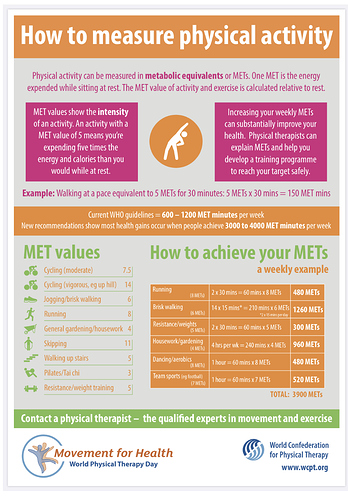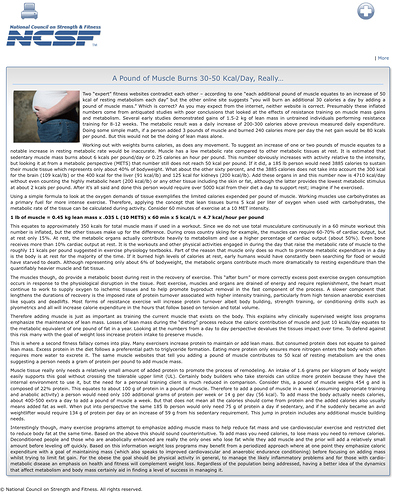And telling people to “eat more carbs” is like violating a stay at home order during a pandemic. I have a hard time with selfishness.
What amount of Carbs the USDA says you should consume
 . Thank you! I’ve been off for a while due to the passing of my wife late last year. Needed this laugh
. Thank you! I’ve been off for a while due to the passing of my wife late last year. Needed this laugh 
Oh, Ron I am so sorry!!! But glad I got you to laugh.
I remember your beautiful wife in the video you posted about finding out you were going to be a Grandpa.
Your liver will do that for you. To speed up the process, just do anything that tricks your body into thinking you are in danger or running for your life, like sprinting
I think bunny is trolling. The only way to say you are cured of T2 is to do an autopsy on your pancreas. Those of us that have healed from the injury (carbohydrate poisoning) are proof this is not a death sentence. And why in the world would any of us want to go back and consume what injured us in the first place.
If bunny is trolling, she if just being a jerk. If not, she is exhibiting some serious addictive behaviour.
[quote=“mtncntrykid, post:59, topic:100134”]
Yes, accomplishing remission of diabetes is a miracle in itself and I personally have to give most of the credit to my success to the support I received from “this” forum! Thanks to all that helped me![/quote]
Thriving, not just surviving!
The guy at the ER that diagnosed me was the only allopath that gave me honest and accurate information. The GP allopath I went to afterwards, shovelled the manure by the truck load. I figured it out on my own with my wife’s help.
Speaking of spouses, my trophy wife/girlfriend/ best friend only eats what I eat so I am never attempted to fall off the wagon. I can not tell you how many spouses I have come across that do not do this. And THAT is a VIOLATION of your marriage vows.
One customer of mine is a T2 and his wife is a vegetarian. I have no idea why he is not dead yet. He must have had 20 heart attacks so far. She does not give a crap.
I would say a better description would be to say “those DTs (Delirium tremens) are horrible! I think you should have a beer!”
Wrong:
Does not work like that, you get fat from eating fat, fat gets stored in adipose fat cells when you over-eat it and also as intra myocellular lipids (the reason you can’t lose no weight and slows down metabolism) and insulin acts according to muscle volume.
Wrong again: again when you over-eat that is the real problem, it is the portion size that matters and how long you wait to eat again so when a person switches over to a ketogenic diet they think ‘if I’m only eating meat and fat and reducing carbohydrates‘ that it some how magically changes the fact that they over-eat. Remember the ketogenic diet is a low sugar diet and has little to do with meat and fat you can eat much higher carbohydrates from Whole Foods with very little meat and fat and get the same result, people who over-eat meat and fat fail to understand that when you over-eat any calorie you are still over-eating it.
I see people who are eating only potato’s for a period of time which is also ketogenic and they can go back to eating what they want and still remain metabolically fit?
This is not a Vegan vs. Carnivore-Ketogenic argument, it is the little scientific nuances between the two and the real science I’m looking at and for?
People want to believe we Evolved and others want to believe we were Created so they try to use diet to prove that because they are predators looking for victims and I don’t fall into those; ‘Human never ate this or that’ type of psychological traps and think nothing can contradict their personal facts?
I think fasting is great but the problem with it is you can’t do it all the time (some people are obsessed with it and are damaging the birthday suit) skipping a day to eat is not really fasting but I think that is the natural way we should be eating.
But logically if your not eating for extreme extended periods of time; your own body parts are being used for fuel and that includes muscle and other bits and parts of other organs which is a damaging type of autophagy not of the healing sort. And also take into consideration Nitrogen Balance?
I think what I’m grasping at in my posts is a thing called metabolic equivalent of task (MET’s for short) combined with the ketogenic diet and fasting. This partially explains some of where I’m going with this.
image link…nor I!
It’s amazing when one resorts to name calling when the response does not fit the mirage of there imagination verses reality?
Amazing notes for behavioral science!
Ah how I miss the old days when Bunny just posted all those Dr Berg videos… every 5 minutes…
Or maybe Bunny has been taken over by a troll…?
@ToddAndMargo I absolutely love what you’ve written here - please have this trophy from me: 
My diet has nothing to do with my SO’s diet. We are different persons with very different ideal diets. We would feel miserable and sick on each other’s woe, why would we do it? That would be stupid. And I need someone to eat the huge amount of fruit my garden yields too… 
We should accept the other person’s diet and other personal business unless it’s very bad. I really appreaciate that he never sad a bad word against mine and he even ate most of the food I make and even used my dietary rules if they fit him. It’s perfect considering the circumstances (he needing a very different diet to thrive). We love each other so we don’t want to hurt the other. It feels good and there is only a tiny sacrifice and it can’t be helped. We never sacrifice our own good woe but there is no need for that.
Thank you. I fear I sometimes offend people with my passion on this subject.
Hi Shinita,
Not to offend, but there is a vast difference between and an SO and being married. One has made a commitment and the other has not. My wife and I stood before both man and God and made vows to each other. An SO reserves the right to dump you whenever and for whatever reason they want.
As far the point you are making, if you were a recovering alcoholic, would your SO keep booze around the house and drag you to bars because he liked doing it and did not have the problem you had with it? It is your problem, why involve him?
Hopefully, I have not alienated you.
-T
Well, I viewed your comment on your trophy wife/girlfriend/best friend as a show of mutual support rather than anything else.
I started eating lower carb in order to make my type 1 diabetes much easier to deal with. Mr S has always been on board with helping me to stay fit and well, and that’s really valuable. When I started eating keto he ate the way I did, but with the additions of high-carb sides, at his request - so he’d have pasta, rice or potatoes etc, alongside the keto ‘main event’, followed by something carby for pudding.
However, he noticed very quickly that he was gaining weight, so expressed an interest in eating as I was eating, so that’s what we do now.
We find it works very well for both of us, and feel very fortunate that we are not only healthy but also happy with our choices.
(Don’t tell him I told you, but Mr S does has a stash of crisps, and there are some portions of cake in the freezer. He has these as an occasional treat - I’m not tempted to fall off the wagon, because I will absolutely not compromise on my blood glucose control.)

I think you’ve staked out an ideological position against fasting, Bunny. Granted that some people have psychological eating disorders, and that it’s possible to starve oneself to death, but my question remains - who, really, is “burning up all their muscle”? Outside of involuntary starvation, I don’t think anybody is. For example - look at Australia, the U.K., and the U.S. - countries well represented on this forum. Where are the cases of substantial muscle loss? Contrast that with the true epidemic of obesity going on.
Quite a few people fast for 21 days, or 30, or 40 on a regular or semi-regular basis, like once a year. People with a lot of fat have fasted for 100 days, or 200 days or more, and while they probably do lose “some muscle” - the body not needing as much to move around a substantially lighter body - they go about their daily activities and when they’re done they’re fine, in general, as was Angus Barbieri after he went from 207kg to 82 (during a 382 day fast).
Huge numbers of people are now fasting for 2 - 5 days per week, or doing multiple 36 or 42 hour fasts per week, and you really do not hear about “muscle loss” being a complaint.
During a fast, nitrogen excretion declines markedly after the first 2 or 3 days, regardless of who the person is. Women are better at conserving nitrogen than men, and people with more fat conserve more nitrogen than those who are leaner.
George Cahill, in 1983 in ‘Starvation,’ noted that normal protein breakdown is about 75 grams per day, and that it falls to 15 - 20 grams per day during starvation.
The last study I looked at (I’ll put a link at the end of the post) showed a range of nitrogen loss - the contribution of protein to total calorie output. The highest range was normal-weight men on a short (6 day) fast - 15%. Obese women, during the 4th week of a fast - 5%.
We should also keep in mind that in no way is it as simple as “nitrogen excretion = muscle loss.” Our skin, for example is ~1/6 of our weight; the body has other sources of protein besides muscle.
Obese women - 5% non-fat energy contribution = stated in the study as being ~19 grams of protein consumed per day - fits in with Cahill’s findings. Using this as an example, it would take 24 days before 1 lb. is lost, or 53 days for 1 kg. This would be further extended, for muscle, by the fact that the muscle loss is only a fraction of the total protein loss.
And - the body’s response to fasting reverses some of whatever muscle loss would occur. Much higher growth hormone levels encourage the body to recycle proteins during the fasting period, and they remain much higher during the refeeding period, during which time the body relatively rapidly replaces some of the lean tissue lost during the fast.
So, not very much protein is lost, per day, during extended fasting, and muscle loss is only a fraction of that, and to an extent those effects are reversed when one begins eating again, after the fast. In the end, we observe that people really aren’t losing much, if any, muscle at all.


